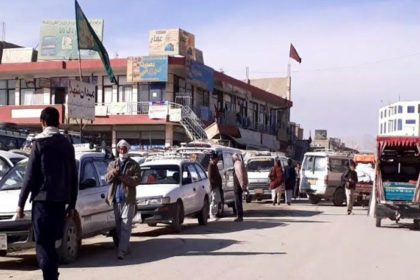RASC News Agency: Nearly three years into the Taliban’s return to power, Afghanistan remains a crucible of regional insecurity, with the Islamic State Khorasan Province (ISIS-K) emerging as a dangerously resilient and evolving threat. In a comprehensive new report released on July 16, the International Crisis Group (ICG) warns that despite high-profile assassinations of several ISIS-K leaders, the group continues to rebuild, expand, and export violence far beyond Afghanistan’s borders. According to the report, the Taliban’s repeated claims of “defeating ISIS-K” amount to little more than a hollow propaganda campaign. Behind closed doors, the Taliban regime appears both unwilling and incapable of decisively neutralizing the group’s operational infrastructure. Instead, ISIS-K has not only survived the Taliban’s purges but has transformed into a more agile, decentralized, and transnational insurgency. The removal of a few commanders has proven cosmetic at best; the group’s ideological networks, recruitment pipelines, and logistical channels remain largely intact.
While the Taliban seeks international recognition by branding itself as a bulwark against extremism, the ICG cautions that such a narrative is dangerously misleading. Evidence suggests that rather than eliminating ISIS-K, the Taliban is strategically tolerating its presence to position itself as a “lesser evil” in the eyes of Western policymakers. This duplicitous strategy allows the Taliban to instrumentalize the ISIS-K threat as a geopolitical bargaining chip using selective counterterrorism operations to curry favor and extract diplomatic concessions from an increasingly desperate international community. The report paints a stark picture of ISIS-K’s evolving tactics and reach. No longer confined to Afghanistan’s rugged provinces, the group has shifted its strategic focus outward establishing covert cells in Pakistan, Iran, Turkey, Russia, and even parts of Europe. ISIS-K’s operational model now favors low-cost, high-impact attacks designed to destabilize fragile states, inflame sectarian divides, and command global media attention. The devastating March 2024 concert bombing in Moscow, which claimed the lives of 149 civilians, is widely attributed to this network a chilling reminder that ISIS-K has graduated from a local insurgency to a global menace.
Alarmingly, many of ISIS-K’s mid- and upper-tier commanders particularly those of Central Asian origin have reportedly relocated to Pakistan. Operating from this more permissive environment, these figures are believed to be orchestrating operations that span multiple borders. Intelligence from the ICG reveals that ISIS-K has quietly reconstituted itself into a diffuse network, leveraging encrypted digital platforms to coordinate, recruit, and radicalize sympathizers across continents. This evolution has made ISIS-K harder to detect, more lethal in its targeting, and significantly less reliant on territorial control. Unlike its predecessors in Iraq and Syria, ISIS-K is not waging a war to hold land it is waging a psychological and ideological campaign designed to outmaneuver both state and non-state actors through unpredictability and asymmetry.
Despite these alarming developments, the Taliban’s counterterrorism approach remains woefully insufficient and riddled with contradictions. While certain ISIS-K operatives have been publicly executed or captured, others appear to operate freely within Taliban-controlled territories raising serious questions about tacit accommodations, intelligence failures, or deliberate negligence. Observers fear that the Taliban’s interest lies not in eradicating ISIS-K, but in manipulating its existence to enhance their own international leverage. “The Taliban’s selective engagement with ISIS-K is not a counterterrorism strategy it is a diplomatic charade,” the ICG report notes. “Their real objective is not regional stability, but regime survival.”
Such realities expose the dangers of legitimizing the Taliban as a partner in global security. With their abysmal human rights record, systemic oppression of women, destruction of civil society, and increasing alignment with other extremist networks, the Taliban’s rule continues to foster the very environment in which ISIS-K thrives: a lawless, unaccountable, and ideologically combustible state. The international community’s failure to formulate a coherent strategy one that both isolates the Taliban and neutralizes ISIS-K is fueling the emergence of a parallel jihadist infrastructure that transcends borders. Left unchecked, this dual threat could plunge Central and South Asia into a prolonged cycle of violence, disinformation, and displacement.
As Afghanistan sinks deeper into political repression and humanitarian catastrophe under Taliban rule, ISIS-K is quietly building the foundations of a more expansive campaign of terror one that may not stop at the gates of Kabul, Islamabad, or Tehran, but instead reach the concert halls, train stations, and airports of Moscow, Istanbul, and beyond.






